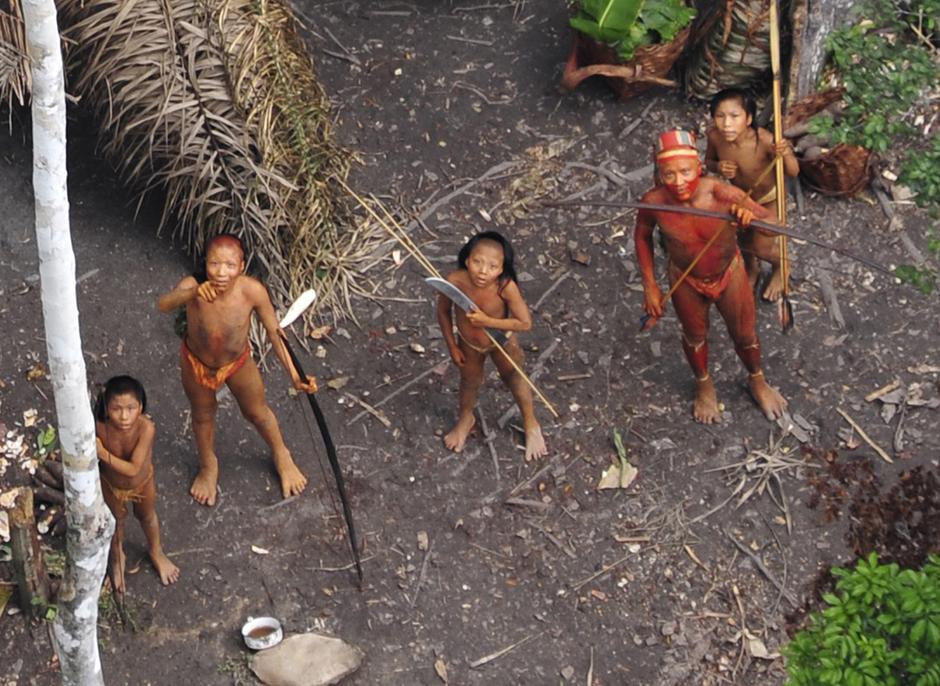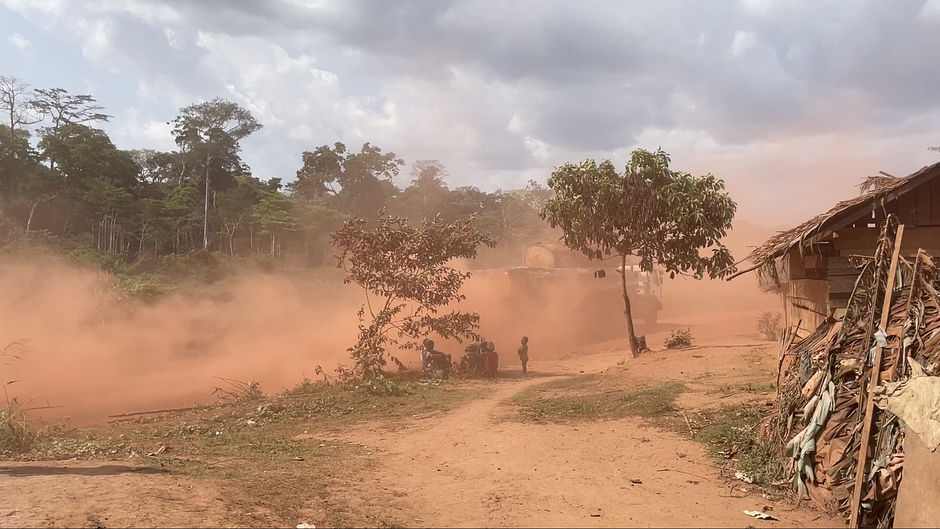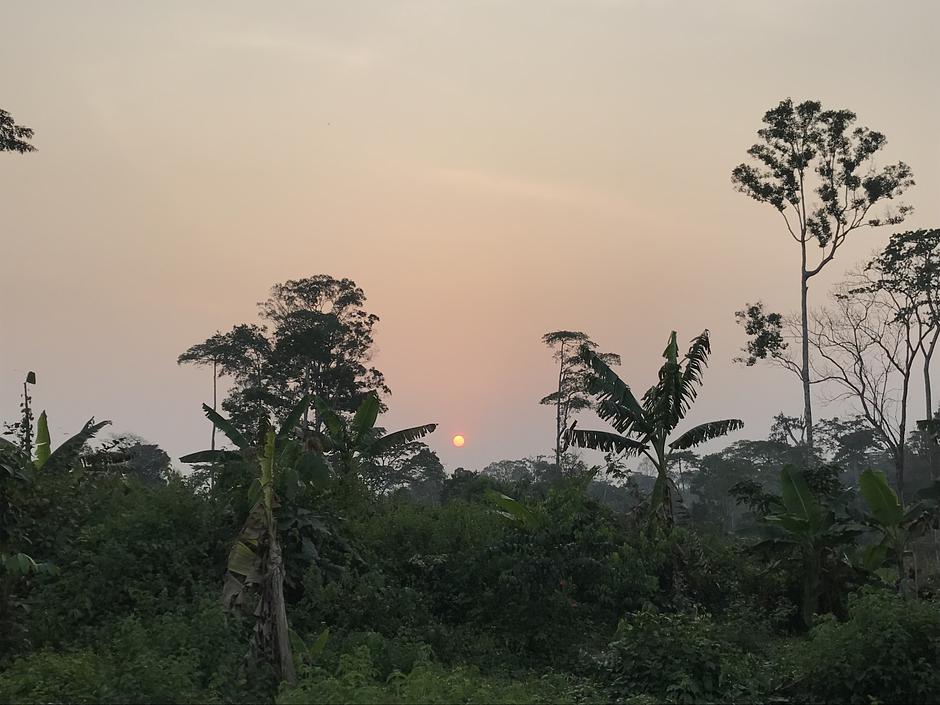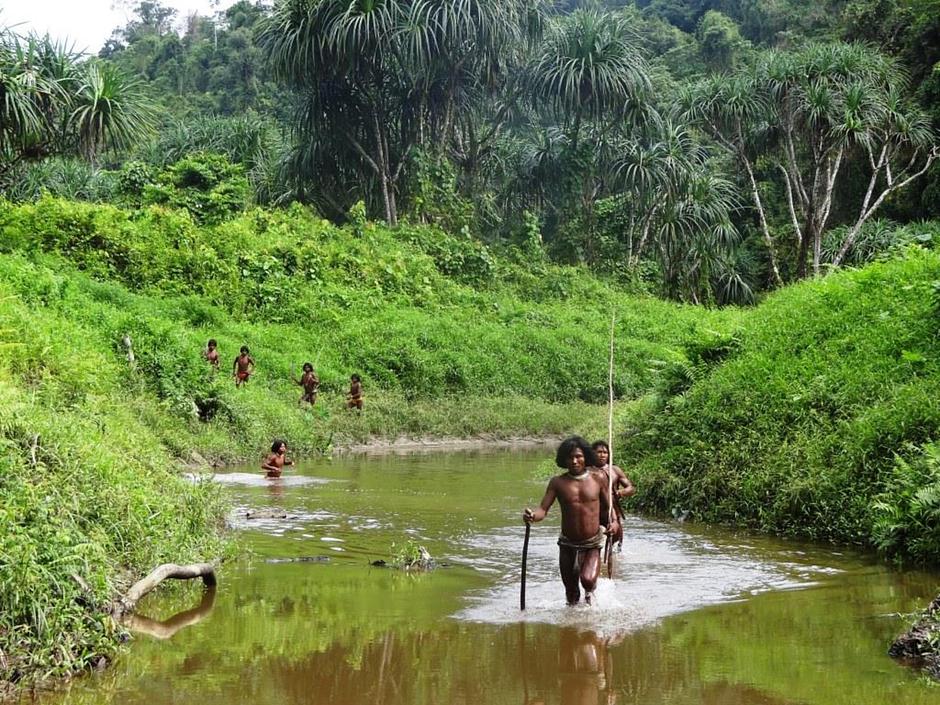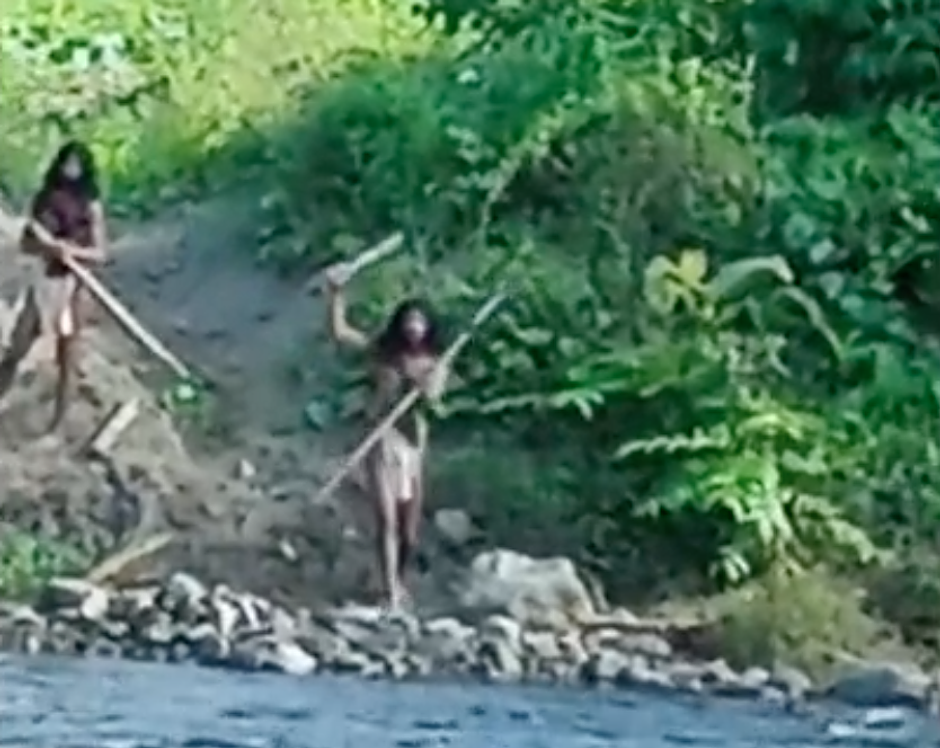An Amazon Indian in London: interview with Nixiwaka Yawanawá
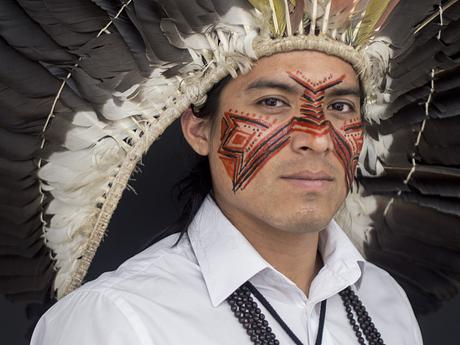
Nixiwaka Yawanawá is living in the UK and between 2013 and 2015 worked at Survival International’s headquarters to raise awareness of the rights of Amazon Indians. His tribe, the Yawanawá, numbers over 900.
Êwê anê Nixiwaka, Ê Yawanawa ihuhu, êwê yurahûki kânu, pênâku hiash. Mâ ika ânu, matuvê iwânâ, mahu tapipai ê uitamêa. Nênuashê kashê êwê yurahâu ravâna ipai
My name is Nixiwaka. I am a member of the Yawanawá tribe. I intend to return to my tribe one day, but first I want to stay in the UK for a while, so that when I return I will be able to help my people.
Childhood and family
The name Yawanawá translates as ‘The People of the Wild Boar’. This is because as a tribe, we are always together – when we hunt, and in life in general. We are a pack.
I was born in Kaxinawa, the most sacred part of the Yawanawá lands, where my people originate from. Kaxinawa is where my grandfather and all our great chiefs are buried. I lived there for a month as a baby, and we then moved to Tarauaca, a small town near our lands.
My Father had been asked by FUNAI (the National Indian Foundation) to represent Indigenous peoples in the area, which is why we moved to Tarauaca. I think he was one of the first Indians to be employed by FUNAI in Acre state, as a driver. He spoke very good Portuguese. I studied in town until I was 10 years old, then we moved back to our village, which is called ‘New Hope’. Kaxinawa is now known as ‘the sacred place’.
My Father was concerned that we were removed from our people and wanted us to be raised within the Yawanawá way of life. In the rainforest, you are completely connected to the elements; you are surrounded by the constant sounds of animals, insects, frogs and water. At night you are illuminated by the stars, which shine endlessly. It is beautiful!
I come from a large family. My father and mother are from different tribes: my father is Yawanawá and my mother is half Shanenawa, from the Nation of Parrots.
Together they have had five children, but I have 10 other siblings from my fathers’ other marriages.
I have three children: two boys from a previous relationship and a girl from my marriage to Oona Béat Yawanawá. They are all half Yawanawá from my side. All my children carry the strong Yawanawá identity and I plan to teach them our traditions.
As a child, I was taught both Portuguese and our own language, Yawanawá. Sadly, when we came into contact with outsiders, our people were forced to speak only Portuguese, so I didn’t have much opportunity to speak the Yawanawá language. I was discriminated against at school. Today, the Yawanawá people speak both languages, and still teach both to the younger generations. And now, living in London, I’ve had to pick up a little English!
Learning English has been a positive thing, as I now understand far more about our rights as Brazilian Indigenous citizens. I know how to use certain technologies and how to communicate with white people. I hope I can share with my people what is good and what is not good about western ways of life.
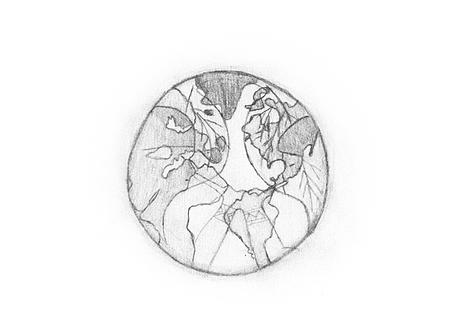
First contact
When we were first contacted, many Yawanawá people died from common colds, from diseases they didn’t know about. Our shamans couldn’t cure them.
After contact, white people forced their opinions on us. We were forced to change the way we prayed, the way we dressed, the languages we spoke and even the way we saw the world. They criticized the way we lived and told us that their way of living was better than ours. Missionaries told us that our rituals were the Devil’s work. We felt ashamed and rejected.
We had no idea we needed a legal right to live on our own lands! The land was and is obviously ours. We’ve never doubted that.
When white men first arrived in our Yawanawá lands they introduced us to things we had never known before such as alcohol, sugar and salt.
I think our own way of life is the healthiest way for the Yawanawá to live in this world and still hold onto what we have learned from the outside. We are happy to share what we know; the things we are still learning from the rainforest.
But many young Yawanawá people still end up in cities, going to parties, drinking a lot and using prostitutes. Like many other tribes, we now also have a big problem with diabetes.
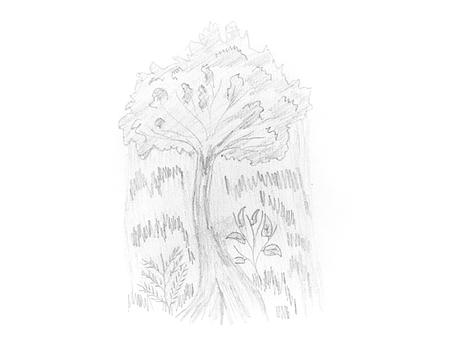
Rainforest knowledge
We have people who are known as ‘Doctors of the rainforest’. They know everything there is to know about medicinal plants. They say that this world is beautiful place to live in; that each one of us on earth has a responsibility to take care of it.
I know that western medicine is now using our plants and remedies that we, the Yawanawá, have used for centuries. From tree bark to frog spit, we hold the answers for cures and poisons alike. Women rub a type of potato plant called ‘rau’, on their tummies in order to try and conceive.
Other plants, such as the plant called ’Hukâshupa’, is used for lovers; to create luck in relationships. It is the sap of three crushed plants, that is worn as a perfume to attract a lover. The forest is a magical place.
I think the western world could perhaps learn to live a life of greater harmony and peace with our surroundings from us. I look forward to a time when we can combine Yawanawá knowledge and western ideas.
Since time immemorial, the Yawanawá people have used ‘rumê’ (snuff-tobacco with bark of a specific tree), as part of our tradition and culture. We mostly use rumê in our sacred ceremonies with UNI (our sacred drink more commonly known as ayahuasca).
But ‘rumê’ is also taken in the afternoon, before washing.
The water cleans our body and spirit; it’s our favorite part of the day.
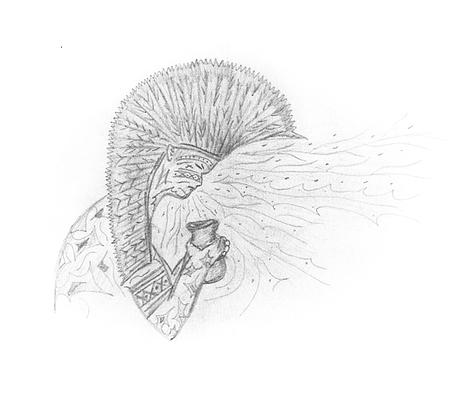
Yawanawá traditions
I had a close relationship with Tuîkuru, Tata, uncles and aunts. Tuîkuru was our patriarch, he has taught me everything there is to know about my Yawanawá culture: language, traditions, medicinal plants and our sacred songs. We sing these during our ceremonies, when we drink our sacred drinks. This is when we tell the stories of our ancestors.
The Yawanawá are known for our songs and tales, my favorite being ‘Wakomaya’, which means ‘happiness’. It is a song we sing to welcome guests into our community and an invitation for them to dance with us. Whenever I sing this song to my daughter, she calms down and listens closely.
During Yawanawá ceremonies we see visions through the songs of the shaman, which connect us to the spiritual world. As soon as the shamans start to sing, they transmit their visions to the group. Some people understand them, others don’t.
During one of our traditional ceremonies, I had a strong vision that I was being led by the hand by my wife, who has lived in London from an early age. In the vision, she was showing me a city that appeared beyond a hill. When I finally did come to London, I had this strong déjà-vu of having been here before. I truly believe it was from my vision.
We inherit these rituals from our ancestors. They are part of who we are. It is the time when you can connect with the spirits, and see the world in a different way.
Hunting
Yawanawá men leave early to hunt, at around 4 or 5 in the morning. We hunt alone. We would make too much noise if we hunted in groups, particularly in the summer, when the leaves crunch beneath your feet. I started hunting at 10 years old and learned by following my father into the rainforest.
We hunt deer, wild pigs, tapir. And we hunt at night for the nocturnal paca, a type of South American rodent.
According to our myth, if a Yawanawá hunter finds a wild boar with one white leg while hunting, he is very lucky.
When we are hunting, we imitate certain animals in order to draw them towards us, like monkeys, deer and caiman.
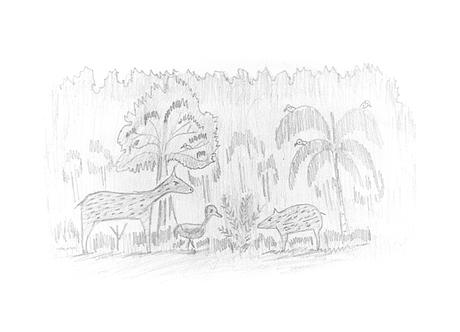
Pets
My mother had a parrot that lived until she was 13 years old. The parrot could talk – she would ask me, ‘Você quer café?’ (‘Would you like a coffee?’).
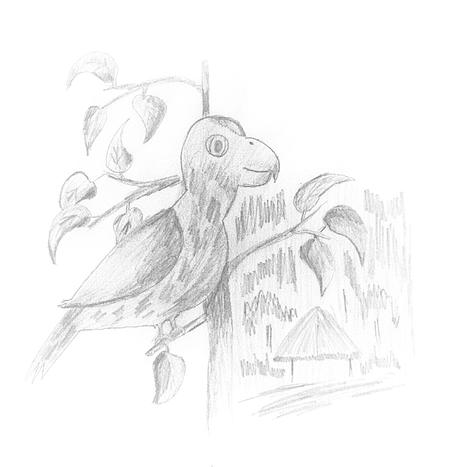
Food
We eat bananas, papaya, sugar cane and manioc juice (called ‘caiçuma’) for breakfast. And meat, if there is some left over from dinner the night before. For lunch we have manioc again, with green bananas and mashed plantain. Supper is meat and fish.
Climbing Ben Nevis
Ben Nevis was a challenge that a great friend of mine told me about. She thought it would be a good opportunity for me to show my support to our brothers, the Awá, who have many struggles. Being Indigenous, we have to help each other in every way possible. I wish I could do more to help them.
I didn’t prepare much for the climb. Having been brought up in the Amazon, I’ve always been fit, perhaps as a result of hunting. Most of it was mental preparation through meditation. I found the climb tiring, but I would happily do it again.
Climbing Ben Nevis was one of the most amazing things I have experienced. The change of landscape as well as temperature was surprising; I could barely stand the cold! We only had a few minutes to take pictures when we reached the summit. When I took off my gloves, it felt like ice.
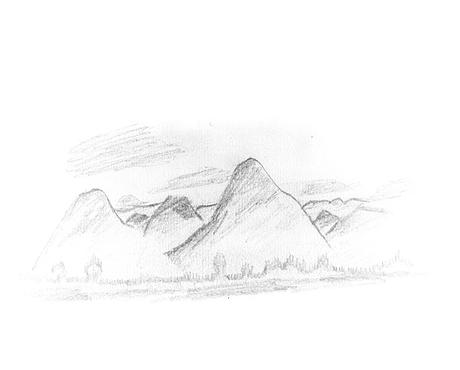
From the Amazon to London
I first heard about Survival from a very close friend of ours, who has been working with the Yawanawá for over 15 years. He was also a sort of sponsor for my trip to London and has supported my family and I in all possible ways. We are beyond grateful for his help and love.
London is a beautiful city, rich in history and filled with ghosts. I feel a very strong energy in wintertime, when I walk in the parks. Sometimes I feel as if I am surrounded by ghosts, who are walking beside me.
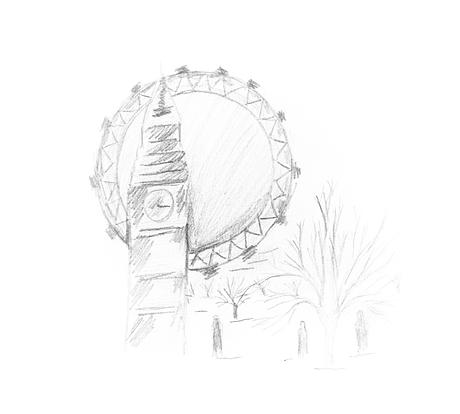
Working with Survival
I believe that Survival is very important for tribes like ours, as they are a promise for change and help protect our lives. I felt honored to work with such an established group of real, kind and motivated people who truly care and believe in their work.
Survival can really help to change people’s opinions by showing the world how Indigenous people live, our traditions and beliefs, and the problems we face.
It is very difficult to hear that other people believe that tribal peoples are ‘backward’ or ‘primitive’. They are wrong. It is a lack of respect for the way we choose to live.
It is now time we make our own decisions. It is now time we have a voice, and we choose to live the way we want to.
Yawanawá homelands
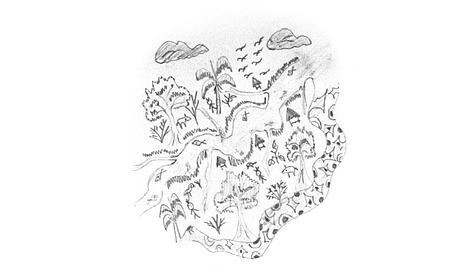
Our land is our home, our house. It is our friend, our comrade. We have a lot of respect for our land, and we have a responsibility to look after it.
My favorite time of day in the rainforest is at the end of the afternoon, at sunset, when I take our sacred medicine. Everyone gathers on a large area of open land. At dusk, birds are come back to roost in the tacana trees, and there is the song of the brown Makukau birds all around us. It is a very peaceful time of day. I miss it!
The destruction of our rainforest land is terrible, because the forest is alive. It is our life, and the animals’ life. We don’t separate our existence from it, we are all one body and one being: the plants, water, trees and Yawanawá.
When we see harm come to the rainforest, it is as if a part of our own body has been hurt. It feels like an illness that rises up in us and needs to be cured.
It has now been 29 years since our lands were demarcated, but that doesn’t stop the deforestation that takes place on the border with Peru and Brazil. There is a fear that one day this might spread into our lands, which will threaten our hunting, our security and the safety of the animals that live amongst us.
Deforestation is the cause of so many issues within Indigenous communities. And the animals need the forest as much as we do.
We have been struggling to protect our Mother Earth. The medicine shows to us, we need to spread our vision to those who can’t see how beautiful this place is.
Listen to Nixiwaka on the BBC World Service’s “Newsday”
Nixiwaka Yawanawa World Service Recording


